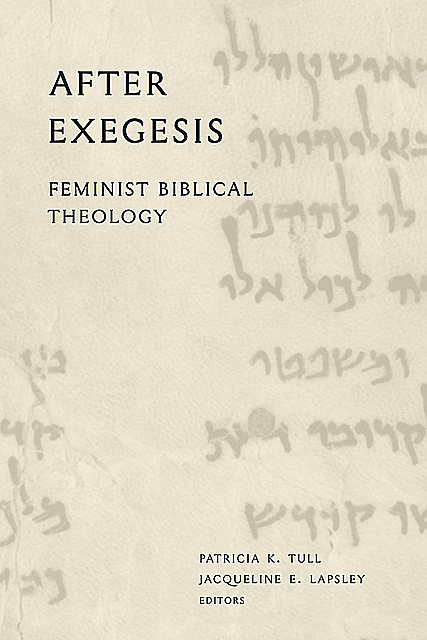We use cookies to improve the Bookmate website experience and our recommendations.
To learn more, please read our Cookie Policy.
To learn more, please read our Cookie Policy.
Accept All Cookies
Cookie Settings
Something went wrong. Try again.

Read in our apps:
iOS
·Android
Jacqueline E.Lapsley,Patricia K. Tull
After Exegesis
Notify me when the book’s added
Impression
Add to shelf
Already read
Report an error in the book
Share
Facebook
Twitter
Copy link
To read this book, upload an EPUB or FB2 file to Bookmate. How do I upload a book?
After Exegesis frames an inclusive feminist biblical theology, exploring creation, providence, divine judgment, salvation, praise, justice, authority, inclusion, the “other,” moral agency, suffering, violence, reconciliation, flourishing, and hope. Each chapter places multiple related biblical texts in dialogue around a common theological concern. In so doing, this work exemplifies a central feminist claim: that bringing two or more texts, often born of different contexts, into conversation with each other generates a productive tension that transcends the dominant theological tradition.
After Exegesis thus underscores the fact that the context for feminist biblical theology must be understood more broadly than it has been traditionally construed. The volume demonstrates feminist theology fulfilling this promised breadth, while also staking a claim to the future: theology must attend to humanity’s interdependent connectedness to the rest of creation and to such realities as human embodiment, suffering, oppression, hope, and the multivocal nature of truth.
After Exegesis thus underscores the fact that the context for feminist biblical theology must be understood more broadly than it has been traditionally construed. The volume demonstrates feminist theology fulfilling this promised breadth, while also staking a claim to the future: theology must attend to humanity’s interdependent connectedness to the rest of creation and to such realities as human embodiment, suffering, oppression, hope, and the multivocal nature of truth.
more
This book is currently unavailable
450 printed pages
Have you already read it? How did you like it?
👍👎
fb2epub
Drag & drop your files
(not more than 5 at once)

